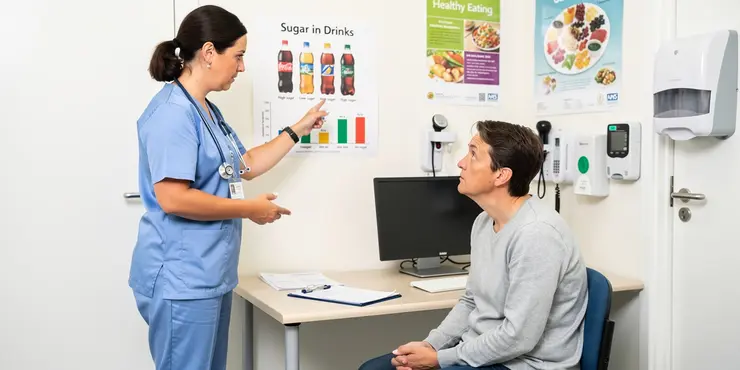
Find Help
More Items From Ergsy search
-
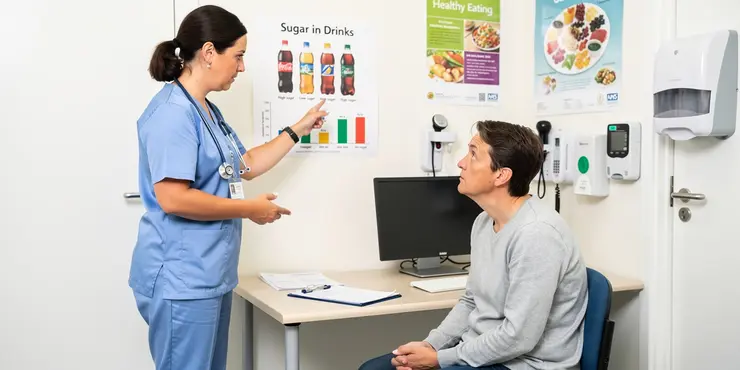
Has the sugar tax affected the sugar content in drinks?
Relevance: 100%
-
Is the sugar tax applied to diet or zero sugar drinks?
Relevance: 86%
-

Which drinks are exempt from the sugar tax?
Relevance: 78%
-

What is the sugar tax in the UK?
Relevance: 77%
-

Has the sugar tax led to innovation in the drinks industry?
Relevance: 75%
-

Who pays the sugar tax?
Relevance: 74%
-

What is the purpose of the sugar tax?
Relevance: 71%
-

Does the sugar tax apply to small businesses?
Relevance: 70%
-

Has the sugar tax been effective?
Relevance: 70%
-

How does the sugar tax affect consumers?
Relevance: 67%
-
How much revenue has the sugar tax generated?
Relevance: 67%
-

What are the long-term goals of the sugar tax?
Relevance: 67%
-
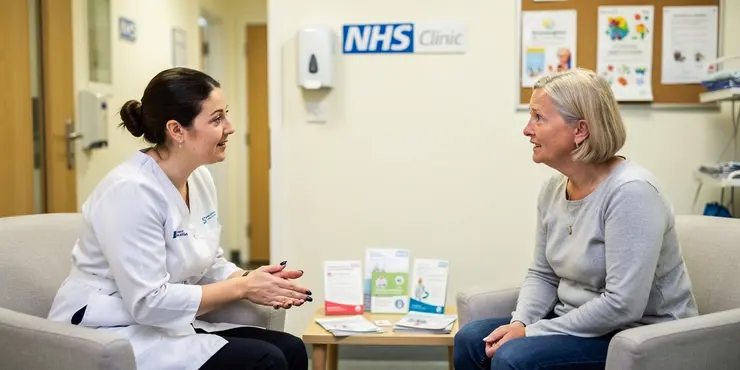
What impact has the sugar tax had on obesity rates?
Relevance: 65%
-

How is the revenue from the sugar tax used?
Relevance: 61%
-
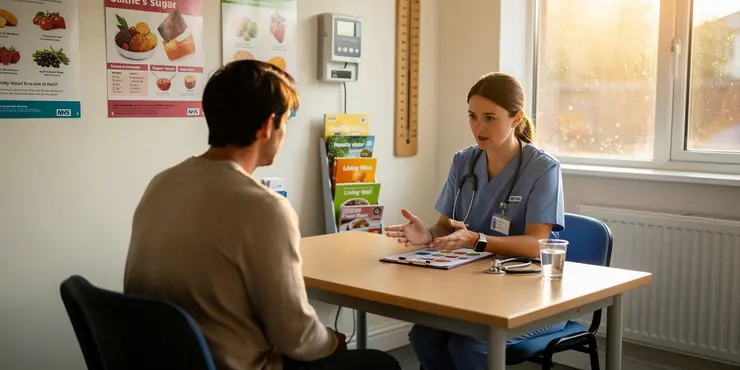
How does the sugar tax align with public health strategies?
Relevance: 61%
-
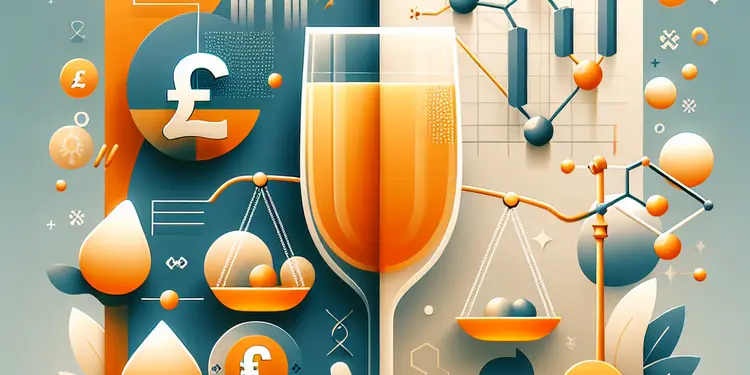
Does drinking orange juice affect blood sugar levels?
Relevance: 59%
-
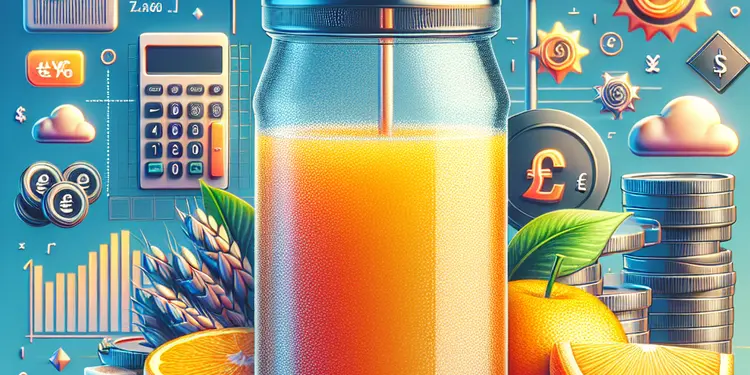
Is orange juice high in sugar?
Relevance: 55%
-
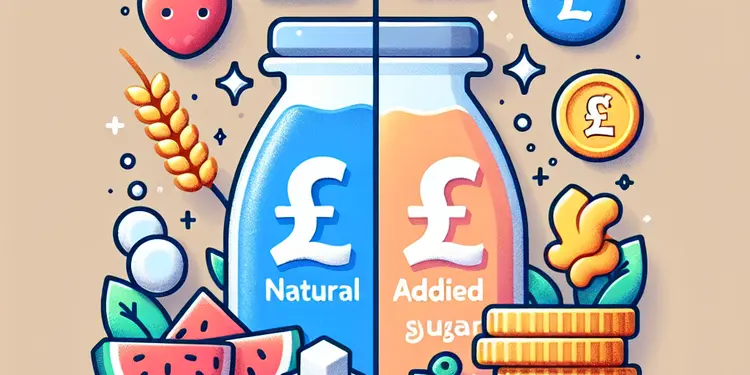
What is the difference between natural sugar and added sugar?
Relevance: 54%
-
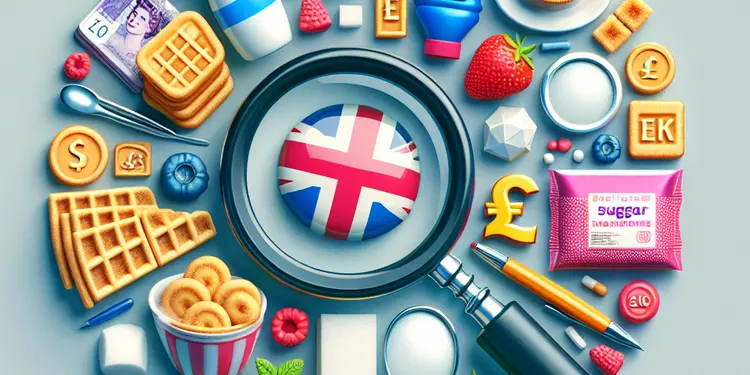
How do I determine how much sugar is in a product?
Relevance: 53%
-
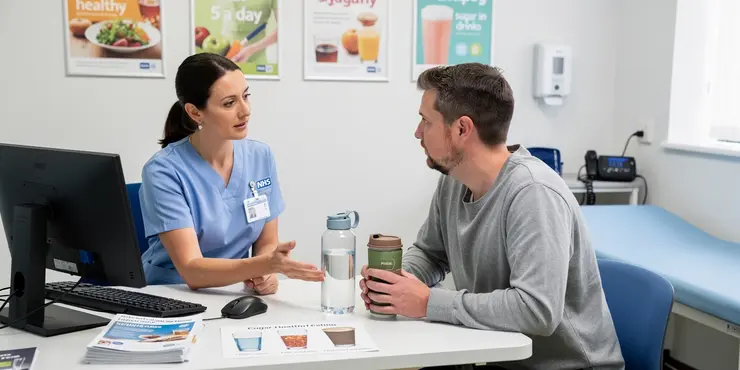
When was the sugar tax introduced in the UK?
Relevance: 53%
-
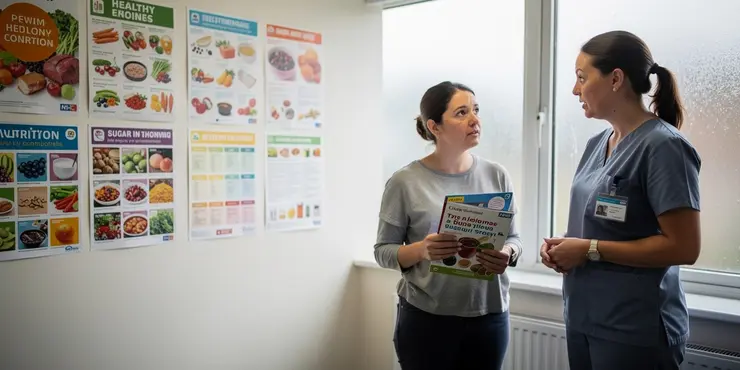
What are the rates for the sugar tax?
Relevance: 53%
-
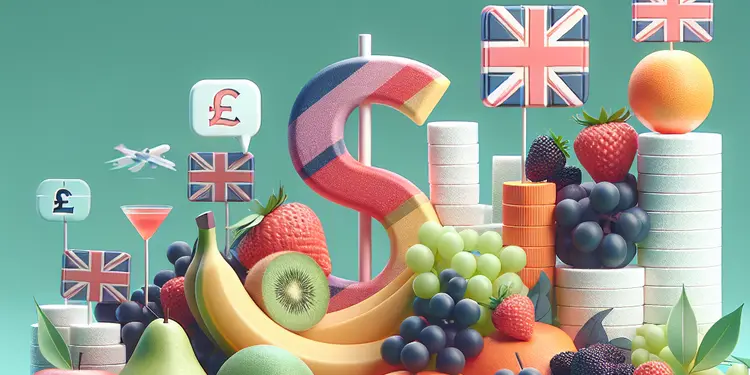
Is the sugar in fruit bad for you?
Relevance: 52%
-

How is the sugar tax applied?
Relevance: 52%
-
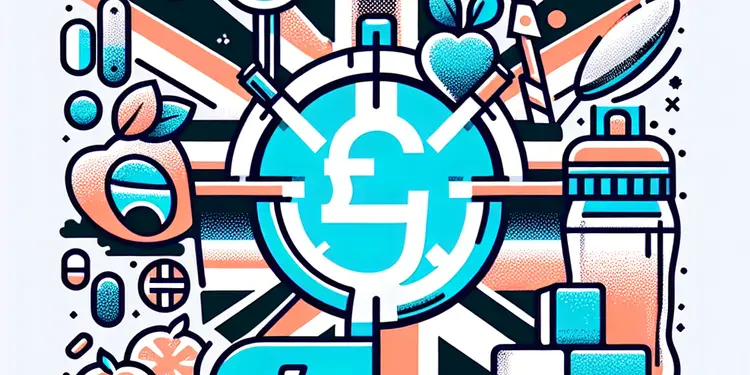
Are sugar substitutes healthier than regular sugar?
Relevance: 51%
-
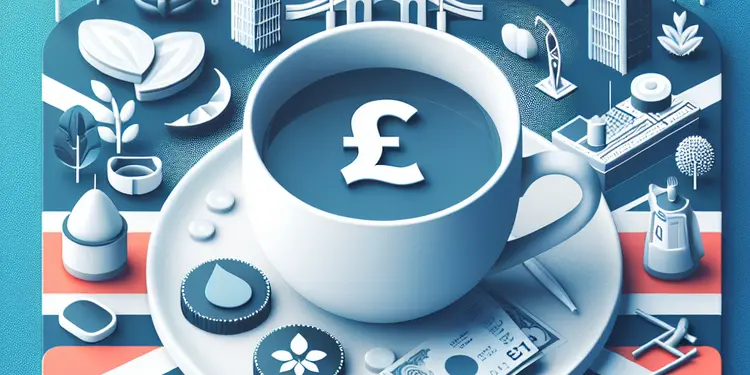
Can I have sugar if I am diabetic?
Relevance: 51%
-

What is the 'sugar crash'?
Relevance: 50%
-
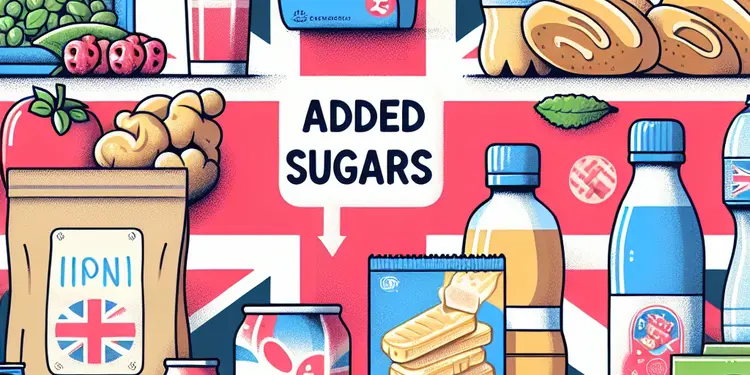
What are some hidden sources of added sugars?
Relevance: 50%
-
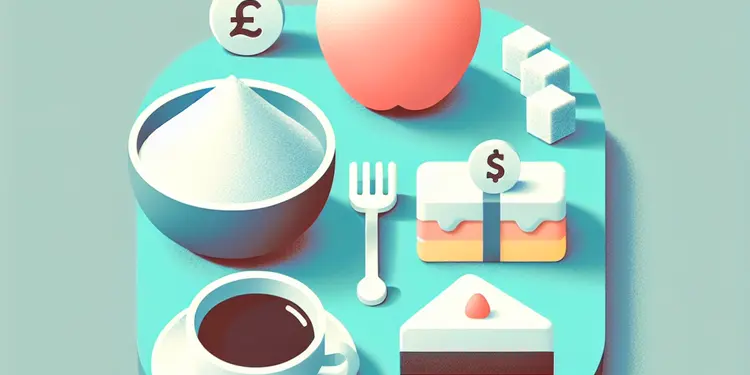
How can I reduce my sugar intake?
Relevance: 50%
-

What is the recommended daily sugar intake for adults?
Relevance: 49%
-
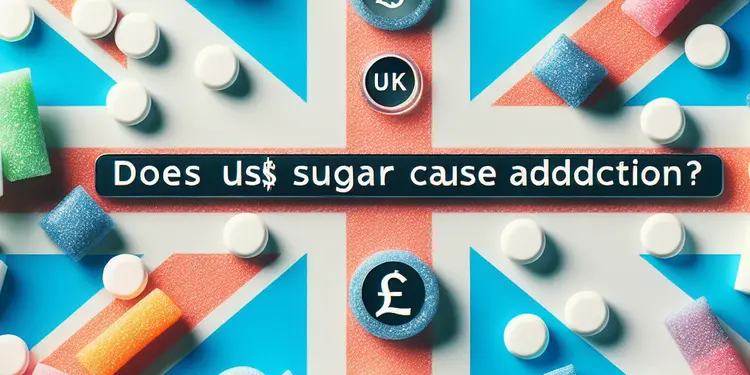
Does sugar cause addiction?
Relevance: 49%
-
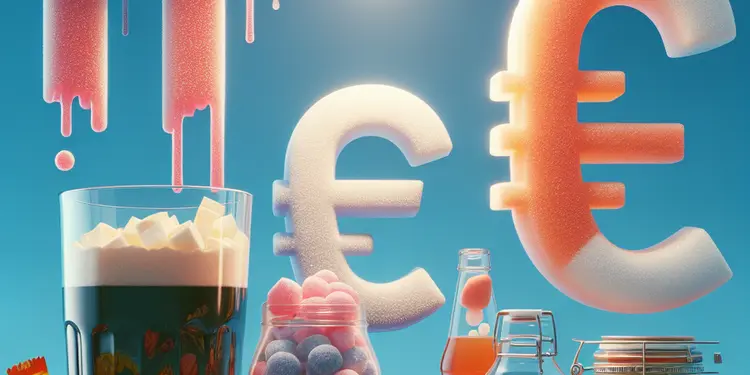
What are 'free sugars' and why should they be limited?
Relevance: 49%
-

Is honey a better alternative to sugar?
Relevance: 48%
-
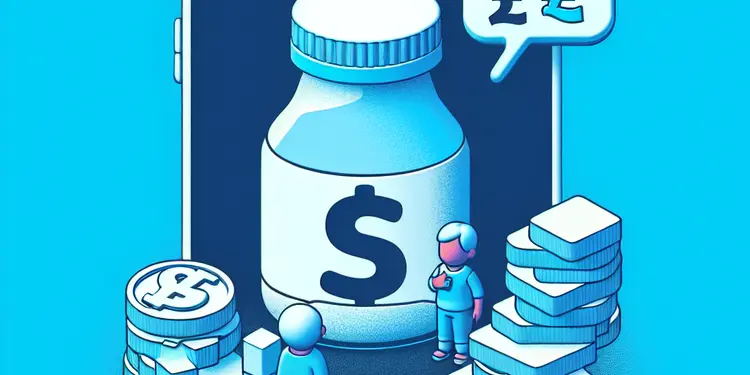
How many grams of sugar should a child consume daily?
Relevance: 48%
-
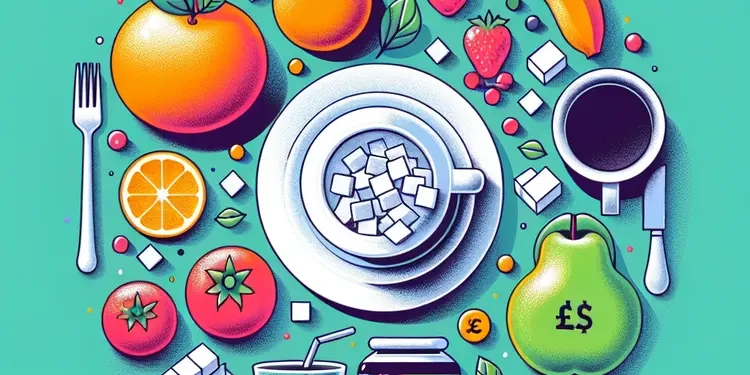
How much sugar should I eat every day?
Relevance: 48%
-
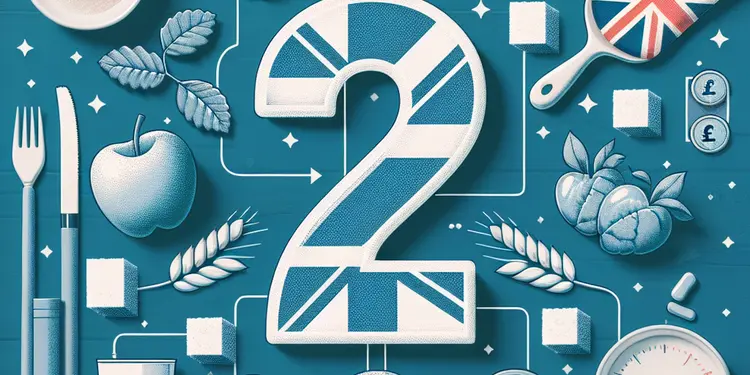
What is the role of sugar in a balanced diet?
Relevance: 47%
-

Why is it important to limit sugar intake?
Relevance: 47%
-
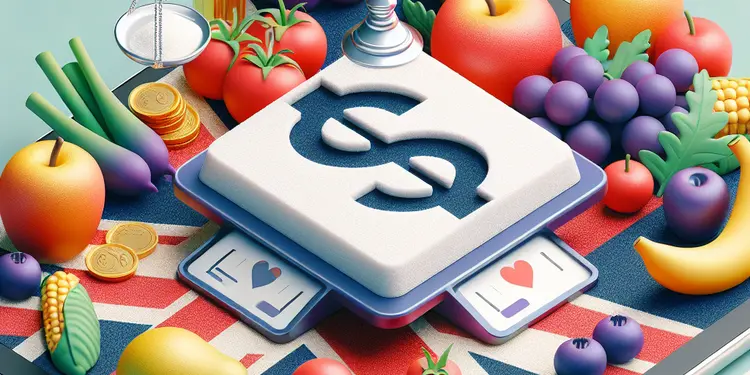
Can reducing sugar intake aid weight loss?
Relevance: 45%
-

How can I satisfy my sweet tooth without consuming sugar?
Relevance: 45%
-

Have any other countries implemented a sugar tax similar to the UK?
Relevance: 44%
-

How does sugar impact mental health?
Relevance: 43%
Introduction to the Sugar Tax
The sugar tax, officially known as the Soft Drinks Industry Levy, was introduced in the UK in April 2018 as part of a government effort to curb excessive sugar consumption, particularly by children and young adults. This legislative measure aimed to encourage manufacturers to reduce the sugar content in sugary drinks by imposing a levy on products with high sugar levels. Drinks with more than 5 grams of sugar per 100 milliliters are taxed, with a higher rate applied to those containing 8 grams or more.
Impact on Sugar Content in Drinks
Since the introduction of the sugar tax, there has been a noticeable impact on the sugar content in drinks within the UK market. Many manufacturers have responded to the levy by reformulating their products to contain less sugar, thus avoiding the tax. Reports suggest that the sugar content in soft drinks has decreased significantly, with some estimates indicating a reduction exceeding 30% in the overall sugar sold in drinks. This reformulation has been achieved by reducing sugar levels and increasing the use of artificial sweeteners.
Changes in Consumer Behavior
Beyond reformulation, the sugar tax has influenced consumer behavior. Since its introduction, there has been a shift in purchasing habits, with consumers increasingly opting for drinks with lower sugar content or sugar-free alternatives. Many people are more aware of the sugar content in their beverages and prefer healthier options, partly due to increased awareness campaigns and clear labeling prompted by the tax. This shift in behavior aligns with the broader public health objectives of the sugar tax.
Economic and Health Outcomes
The economic impact of the sugar tax has also been notable. While manufacturers have borne the cost of reformulation, some have passed on the expense to consumers through price increases on higher-sugar drinks. Despite this, the levy has raised significant revenue, which the UK government plans to reinvest in health and education initiatives aimed at reducing childhood obesity. From a health perspective, early studies have indicated potential benefits, such as a reduction in calorie intake from sugary drinks, contributing to broader public health objectives like lowering obesity rates and related diseases.
Conclusion
In summary, the sugar tax has positively impacted the sugar content in drinks available in the UK market by incentivizing manufacturers to reformulate products and encouraging healthier consumer choices. Although the long-term health benefits are still being evaluated, early indicators show promise in reducing sugar consumption. Combined with other public health measures, the sugar tax represents a significant step toward improving dietary health outcomes for the UK population.
Introduction to the Sugar Tax
The sugar tax is a rule about sugary drinks. It started in the UK in April 2018. The government made this rule to help people, especially kids, drink less sugar. The rule says that if a drink has a lot of sugar, the company has to pay a tax. Drinks with more than 5 grams of sugar in 100 milliliters must pay the tax, and even more if they have 8 grams or more.
Impact on Sugar Content in Drinks
Since the sugar tax began, drinks in the UK have become less sugary. Many companies changed their drinks to have less sugar so they wouldn't have to pay the tax. Some reports say the sugar in drinks has gone down a lot, by more than 30%. Companies are using less sugar and more sweeteners that are not sugar.
Changes in Consumer Behavior
The sugar tax has changed what drinks people buy. People are choosing drinks with less sugar or no sugar at all. They know more about how much sugar is in their drinks and want healthier choices. This change is also because of campaigns that tell people about sugar, and clear labels on drinks.
Economic and Health Outcomes
The sugar tax has had effects on money and health too. Companies had to spend money to change their drinks, and some raised prices for sugary drinks. The tax has collected a lot of money, which the UK government wants to use to help kids be healthier. Studies suggest people may be drinking fewer sugary drinks, helping to lower obesity and other health problems.
Conclusion
In short, the sugar tax has helped make drinks in the UK have less sugar. This encourages companies to make healthier drinks and people to pick better options. While we are still learning about the health benefits, the sugar tax is a good step towards better health for everyone in the UK.
Frequently Asked Questions
What is the sugar tax?
The sugar tax, often referred to as the soft drinks industry levy, is a tax imposed on manufacturers of sugary drinks to encourage the reduction of sugar content and reduce sugar consumption among the public.
When was the sugar tax implemented?
The sugar tax was implemented in the UK on April 6, 2018.
How does the sugar tax affect the sugar content in drinks?
The sugar tax incentivizes manufacturers to reduce sugar content in their drinks by imposing a levy on drinks with sugar content above a certain threshold.
Are there specific sugar levels that determine the tax?
Yes, drinks with a total sugar content above 5 grams per 100 milliliters are taxed, with a higher rate for drinks above 8 grams per 100 milliliters.
Have manufacturers changed their recipes due to the sugar tax?
Many manufacturers have reformulated their products to reduce sugar content and avoid the tax, leading to lower sugar levels in many drinks.
What impact has the sugar tax had on consumer choice?
The sugar tax has resulted in more lower-sugar and non-sugar options available to consumers as manufacturers adjust their offerings.
Are all drinks subject to the sugar tax?
No, fruit juices and milk-based drinks are generally exempt from the sugar tax, but most sugary soft drinks are subject to it.
How does the sugar tax affect public health?
The sugar tax aims to reduce sugar consumption, potentially leading to improved public health outcomes, such as reduced obesity rates and related diseases.
Has the sugar tax led to a reduction in sugar consumption?
Early evidence suggests that the sugar tax has contributed to a reduction in sugar consumption from sugary drinks.
Do all countries have a sugar tax?
No, not all countries have implemented a sugar tax, but several, including the UK, Mexico, and parts of the US, have adopted similar levies.
What is the reaction of consumers to the sugar tax?
Consumer reactions are mixed, with some supporting the health benefits and others criticizing the tax as a financial burden or limiting choice.
Has the sugar tax affected sales of sugary drinks?
In several instances, sugary drink sales have decreased, and sales of lower-sugar alternatives have increased as a result of the sugar tax.
Do small businesses get exemptions from the sugar tax?
In some jurisdictions, smaller producers or those with low annual sales volumes may be exempt from the tax or face reduced rates.
How does the sugar tax affect the economy?
The sugar tax can generate revenue for governments and incentivize product innovation, but it can also impact beverage industry profits and consumer prices.
What are the arguments against the sugar tax?
Critics argue it may not significantly affect public health, could disproportionately impact lower-income individuals, and could limit consumer choice.
How do manufacturers typically respond to the sugar tax?
Manufacturers often respond by reformulating products, launching new sugar-free versions, or increasing prices to offset the tax.
What role does consumer education play in the effectiveness of the sugar tax?
Consumer education complements the sugar tax by informing the public about the health impacts of sugar, leading to more informed choices.
Have any products been discontinued due to the sugar tax?
Some products with high sugar content have been discontinued or reformulated to avoid the tax and align with changing consumer preferences.
What impact might the sugar tax have on childhood obesity?
Reducing sugar intake from drinks can contribute to efforts to decrease childhood obesity, but it must be part of a broader public health strategy.
Can the sugar tax be seen as a success?
The sugar tax is considered a success in areas where it has reduced sugar consumption and encouraged manufacturers to lower sugar content, though its overall impact is still being assessed.
What is the sugar tax?
The sugar tax is extra money that the government charges on drinks with lots of sugar. This helps people choose healthier drinks. The money from the tax is used for health programs.
Here are some ways to understand it better:
- Look at labels that show how much sugar is in drinks.
- Use pictures or videos to see how sugary drinks affect our health.
- Talk with someone who can explain it simply, like a friend or teacher.
The sugar tax is a special rule for makers of sugary drinks. It is also called the soft drinks industry levy. This rule asks makers to put less sugar in drinks. It helps people drink less sugar and stay healthy.
When did the sugar tax start?
The UK started the sugar tax on April 6, 2018.
What does the sugar tax do to the sugar in drinks?
The sugar tax asks drink makers to use less sugar in drinks. This means drinks might have less sugar now.
If you want to check how much sugar is in a drink, look at the label. You can also use apps that scan the label to tell you about sugar.
The government puts an extra cost on drinks that have a lot of sugar. This makes drink companies want to put less sugar in their drinks.
Does the amount of sugar decide the tax?
Yes, drinks with more than 5 grams of sugar in 100 milliliters have a tax. Drinks with more than 8 grams of sugar have a higher tax.
Did companies make their food or drink recipes different because of the sugar tax?
Many companies have changed their drinks to have less sugar. This helps them not pay extra money because of sugar taxes. Now, many drinks have less sugar in them.
How does the sugar tax change what people buy?
The sugar tax means there are now more drinks and foods with less sugar or no sugar for people to buy. This is because the companies that make these products have changed them.
Do all drinks have a sugar tax?
No, juices from fruit and drinks with milk do not usually have to pay the sugar tax. But, most fizzy drinks with lots of sugar do have to pay it.
What is the sugar tax and how does it help people stay healthy?
The sugar tax is a rule that makes companies pay more money if their drinks have a lot of sugar.
The goal of the sugar tax is to help everyone stay healthy by getting us to drink less sugary drinks like sodas and sweet juices.
If we drink less sugar, we can have healthier bodies with stronger teeth and better weight control.
You can use tools like food labels to help you choose drinks with less sugar.
Remember: Drinking water and milk is always a great idea!
The sugar tax is a way to help people eat and drink less sugar. This can make people healthier. It might help stop diseases like obesity, which is when people are very overweight.
Did the sugar tax make people eat less sugar?
A sugar tax is when people pay more money for foods and drinks with lots of sugar. This can make sugary things cost more.
The question is asking if this extra cost made people buy and eat less sugar.
To help understand, you can use pictures, charts, or graphs. These tools can show if people started to eat less sugar after the tax.
The sugar tax may be helping people drink less sugar from sugary drinks.
Do all countries have a sugar tax?
Does every country make people pay extra money for sugary drinks and sweets?
No, not every country has a sugar tax. But some countries do, like the UK, Mexico, and parts of the US.
How do people feel about the sugar tax?
People feel differently about this tax. Some people like it because it helps them be healthy. Other people do not like it. They think it costs them too much money or gives them fewer choices.
Did the sugar tax change how much people buy fizzy drinks?
A sugar tax is extra money you pay when you buy drinks with lots of sugar.
This question asks if the extra cost makes people buy fewer sugary drinks.
If you want to understand more, you can:
- Ask a friend or adult for help.
- Use pictures to learn about sugar and drinks.
- Use simple charts to see if people buy less or more.
In many places, people are buying fewer sugary drinks because of the sugar tax. Instead, they are buying more drinks with less sugar.
Do small businesses have to pay sugar tax?
Does your small business have to pay the tax on sugary drinks? Some small businesses do not have to pay this tax.
If you need help understanding, you can:
- Ask a friend or family member to explain it.
- Use a dictionary to look up difficult words.
- Speak to someone who knows about taxes.
In some places, small businesses or those that do not sell a lot each year might not have to pay the tax. If they do, they might pay less than bigger businesses.
How does the sugar tax change the economy?
A sugar tax is extra money people pay when buying sugary drinks.
Here is how it can change the economy:
- People might buy fewer sugary drinks and choose healthier options.
- Companies may lose money from sugary drink sales.
- The government gets more money from the tax.
Supportive tools:
- Use pictures to understand better.
- Ask an adult for help if needed.
The sugar tax is a way for governments to make money. It can also encourage companies to make healthier drinks. But, it might make some drinks more expensive and affect how much money drink companies make.
Why do some people not like the sugar tax?
Some people think it might not help improve health. They also worry it could be harder for people who don't have much money. And they say it might mean less choice for shoppers.
What do companies do when there is a sugar tax?
Here's a simple way to understand it:
- Change Recipes: Companies might use less sugar in their drinks or food.
- Use Different Sweeteners: They might add different types of sweeteners instead of sugar.
- Smaller Packages: They could make smaller sizes of their products.
- Raise Prices: Sometimes, they might raise the price of sugary items.
Try using picture clues or simple charts to help understand these changes better!
Companies that make things like soda or candy sometimes change their recipes, make new versions without sugar, or raise prices on their products to deal with the tax.
How does teaching people help the sugar tax work better?
Learn about how the sugar tax can help us stay healthy. When people know why too much sugar is bad, they can make better choices. Knowing about healthy eating can make the sugar tax work even more.
Here are some helpful tips:
- Read food labels to see how much sugar is in food.
- Watch videos that explain the sugar tax.
- Ask teachers or friends to talk about why less sugar is good for us.
When we understand, we can make good choices and stay healthy!
Consumer education helps the sugar tax by teaching people about how sugar affects their health. This helps people make better choices.
Have any products stopped because of the sugar tax?
The sugar tax is a rule that makes sugary drinks cost more money. Some drinks are too sugary and can make us unhealthy.
Companies may stop making certain drinks because of the sugar tax. If a drink stops, you can't buy it anymore.
If reading is hard or if you need help understanding, try using tools like picture cards or talking to someone who can explain it in simple words. You can also break sentences into smaller parts to read one at a time.
Some sugary foods and drinks have been changed or stopped to avoid paying extra money and to give people what they want.
How could the sugar tax help kids stay healthy?
The sugar tax means drinks with lots of sugar cost more money. This might make people buy fewer sugary drinks.
If kids drink less sugary stuff, they might not get as many extra pounds. This can help them stay at a healthy weight.
Here are some tips to understand:
- Look for drinks with less sugar.
- Drink more water and milk instead.
- Ask an adult to help you choose healthy drinks.
Try using picture charts or apps that help you learn about sugar in drinks.
Drinking less sugary drinks can help kids stay healthy and avoid getting too heavy. But to really help, we need many more plans to keep us all healthy.
Is the sugar tax working well?
The sugar tax has worked well in some places. It helps people eat less sugar. It also makes companies use less sugar in their products. We are still checking to see how much it helps.
Useful Links
This website offers general information and is not a substitute for professional advice.
Always seek guidance from qualified professionals.
If you have any medical concerns or need urgent help, contact a healthcare professional or emergency services immediately.
Some of this content was generated with AI assistance. We’ve done our best to keep it accurate, helpful, and human-friendly.
- Ergsy carfully checks the information in the videos we provide here.
- Videos shown by Youtube after a video has completed, have NOT been reviewed by ERGSY.
- To view, click the arrow in centre of video.
- Most of the videos you find here will have subtitles and/or closed captions available.
- You may need to turn these on, and choose your preferred language.
- Go to the video you'd like to watch.
- If closed captions (CC) are available, settings will be visible on the bottom right of the video player.
- To turn on Captions, click settings .
- To turn off Captions, click settings again.
More Items From Ergsy search
-

Has the sugar tax affected the sugar content in drinks?
Relevance: 100%
-
Is the sugar tax applied to diet or zero sugar drinks?
Relevance: 86%
-

Which drinks are exempt from the sugar tax?
Relevance: 78%
-

What is the sugar tax in the UK?
Relevance: 77%
-

Has the sugar tax led to innovation in the drinks industry?
Relevance: 75%
-

Who pays the sugar tax?
Relevance: 74%
-

What is the purpose of the sugar tax?
Relevance: 71%
-

Does the sugar tax apply to small businesses?
Relevance: 70%
-

Has the sugar tax been effective?
Relevance: 70%
-

How does the sugar tax affect consumers?
Relevance: 67%
-
How much revenue has the sugar tax generated?
Relevance: 67%
-

What are the long-term goals of the sugar tax?
Relevance: 67%
-

What impact has the sugar tax had on obesity rates?
Relevance: 65%
-

How is the revenue from the sugar tax used?
Relevance: 61%
-

How does the sugar tax align with public health strategies?
Relevance: 61%
-

Does drinking orange juice affect blood sugar levels?
Relevance: 59%
-

Is orange juice high in sugar?
Relevance: 55%
-

What is the difference between natural sugar and added sugar?
Relevance: 54%
-

How do I determine how much sugar is in a product?
Relevance: 53%
-

When was the sugar tax introduced in the UK?
Relevance: 53%
-

What are the rates for the sugar tax?
Relevance: 53%
-

Is the sugar in fruit bad for you?
Relevance: 52%
-

How is the sugar tax applied?
Relevance: 52%
-

Are sugar substitutes healthier than regular sugar?
Relevance: 51%
-

Can I have sugar if I am diabetic?
Relevance: 51%
-

What is the 'sugar crash'?
Relevance: 50%
-

What are some hidden sources of added sugars?
Relevance: 50%
-

How can I reduce my sugar intake?
Relevance: 50%
-

What is the recommended daily sugar intake for adults?
Relevance: 49%
-

Does sugar cause addiction?
Relevance: 49%
-

What are 'free sugars' and why should they be limited?
Relevance: 49%
-

Is honey a better alternative to sugar?
Relevance: 48%
-

How many grams of sugar should a child consume daily?
Relevance: 48%
-

How much sugar should I eat every day?
Relevance: 48%
-

What is the role of sugar in a balanced diet?
Relevance: 47%
-

Why is it important to limit sugar intake?
Relevance: 47%
-

Can reducing sugar intake aid weight loss?
Relevance: 45%
-

How can I satisfy my sweet tooth without consuming sugar?
Relevance: 45%
-

Have any other countries implemented a sugar tax similar to the UK?
Relevance: 44%
-

How does sugar impact mental health?
Relevance: 43%


